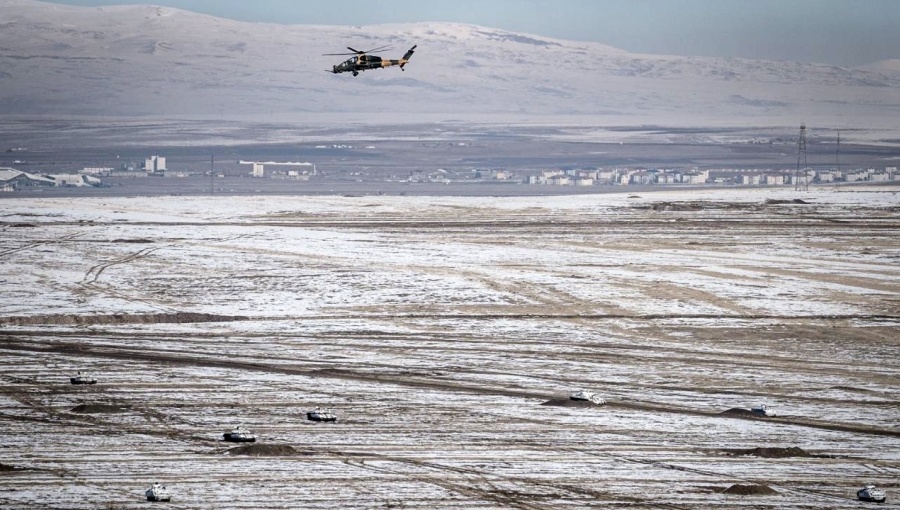Inside Azerbaijan’s Bold Plan for a NATO Base in Khachmaz on the Russian Border

Azerbaijani Proposal for NATO Military Presence Sparks Debate on Russian Border
Emergence of a Potential NATO Base in Khachmaz: A Geopolitical Turning Point
A recent wave of reports originating from Baku has brought a bold proposal into the spotlight—the potential establishment of a NATO facility within Azerbaijan’s Khachmaz region, a territory directly adjacent to the border with the Russian Federation. This suggested step comes at a time when regional security narratives are rapidly evolving, driven by heightened concerns and changing balances of power throughout the South Caucasus. Media coverage in Azerbaijan has characterized the situation as one where external threats are mounting, suggesting that the time is ripe for decisive new deterrence initiatives. Underpinning this rationale is the argument that the move would be underpinned by frameworks such as the Individual Partnership Action Plan (IPAP), which has for years defined defense cooperation between Azerbaijan and NATO member states.
The timing and framing of this proposal are closely related to a shifting regional context. According to some voices in Azerbaijani commentary, previous alliances and strategies have been substantially reshaped by recent military campaigns, border developments, and fluctuating alliances. The discussion around establishing such a military installation rests not only on immediate security concerns but also on interpretations of international protocols, with advocates maintaining that this step would comply with prevailing legal and diplomatic norms. Notably, this conversation is unfolding alongside a broader re-examination of partnership arrangements with outside powers and the prospects for enhanced strategic cooperation with Western actors.
Shifting Influence and Pragmatism in the South Caucasus
Within Azerbaijan, the publication discussing a NATO presence asserts that traditional regional power dynamics are experiencing substantial recalibration. The influence of Moscow—historically a dominant player not only in Azerbaijan, but also across much of the South Caucasus—is characterized in current discourse as waning. Against this background, Azerbaijani thought leaders are now emphasizing pragmatism and adaptability, positioning Baku as capable of pursuing varied partnerships to advance national interests even if this brings short-term friction with established allies.
Calls for a closer alignment with Western defense structures and political entities are being presented within the framework of a broader, forward-looking agenda. Proponents stress that intensified cooperation with NATO and its member states does not inherently contradict international standards, citing existing cooperation mechanisms such as IPAP as legitimate foundations for further engagement. This perspective underscores the view that Azerbaijan needs to remain proactive and responsive to rapidly shifting realities, especially in the face of perceived security challenges.
Economic Realities and Regional Connectivity Amid Security Tensions
While the security dimension of the discussion has dominated recent headlines, parallel economic realities remain pivotal for Baku’s policymakers and citizens alike. In other articles from the same Azerbaijani publications, pragmatic questions have been raised about current and future freight logistics linking Azerbaijan to Russia. Disruptions or uncertainty in this domain can rapidly ripple through both countries’ economies, given the enduring importance of cross-border commerce.
Despite current debates regarding military infrastructure and external alliances, it is consistently emphasized that Russia continues to serve as a major destination for Azerbaijani goods and is a significant source of employment opportunities for migrant workers. This duality—where security and economic interests are in simultaneous tension and alignment—characterizes the unique complexities facing Azerbaijan at this moment. The emergence of a NATO-linked facility, should it materialize, would thus need to be evaluated within a nuanced landscape that extends beyond simple binary alliances or rivalries.
Pivotal Context: Security Cooperation and Strategic Calculus
The notion of installing a Western-allied defense asset in such a strategically sensitive location is regarded by observers as a pivotal recalibration in the region's security order. Current reporting references not just Azerbaijani-driven calculations, but also the interests of Turkey, a prominent NATO member and longstanding partner of Baku. Discussions have surfaced regarding the possibility of joint military management, signaling a substantially increased role for Ankara in the region’s future security architecture.
Meanwhile, regional analysts and stakeholders are closely monitoring potential spillover effects. The shift prompts careful scrutiny of existing bilateral agreements, the operational scope of proposed facilities, and the interplay between soft and hard power in influencing regional decision-making. Even as formal steps are still in motion, the debate over a military presence of this scale reflects a larger conversation about sovereignty, leverage, and the navigation of complex neighboring relationships.
Strategic Communication and the Public Discourse
The coverage and reaction within Azerbaijani media showcase a deliberate effort to define the country’s evolving foreign policy orientation. Messaging has sought to communicate resolve, modernization, and a readiness to adapt, aiming to reinforce internal consensus while signaling commitment to new international partnerships. This new assertiveness, however, is tempered by reminders of practical constraints: the economy remains tightly interwoven with Russian markets and labor channels, ensuring that economic considerations will remain inseparable from questions of military alignment.
Ultimately, the unfolding debate encapsulates the intersection of longstanding historical legacies and emergent geopolitical imperatives. The outcome will depend on a constellation of factors—including diplomatic negotiations, economic durability, and evolving security assessments—each continuing to shape the landscape of Azerbaijani-Russian relations and the broader trajectory of alignment in the South Caucasus.
